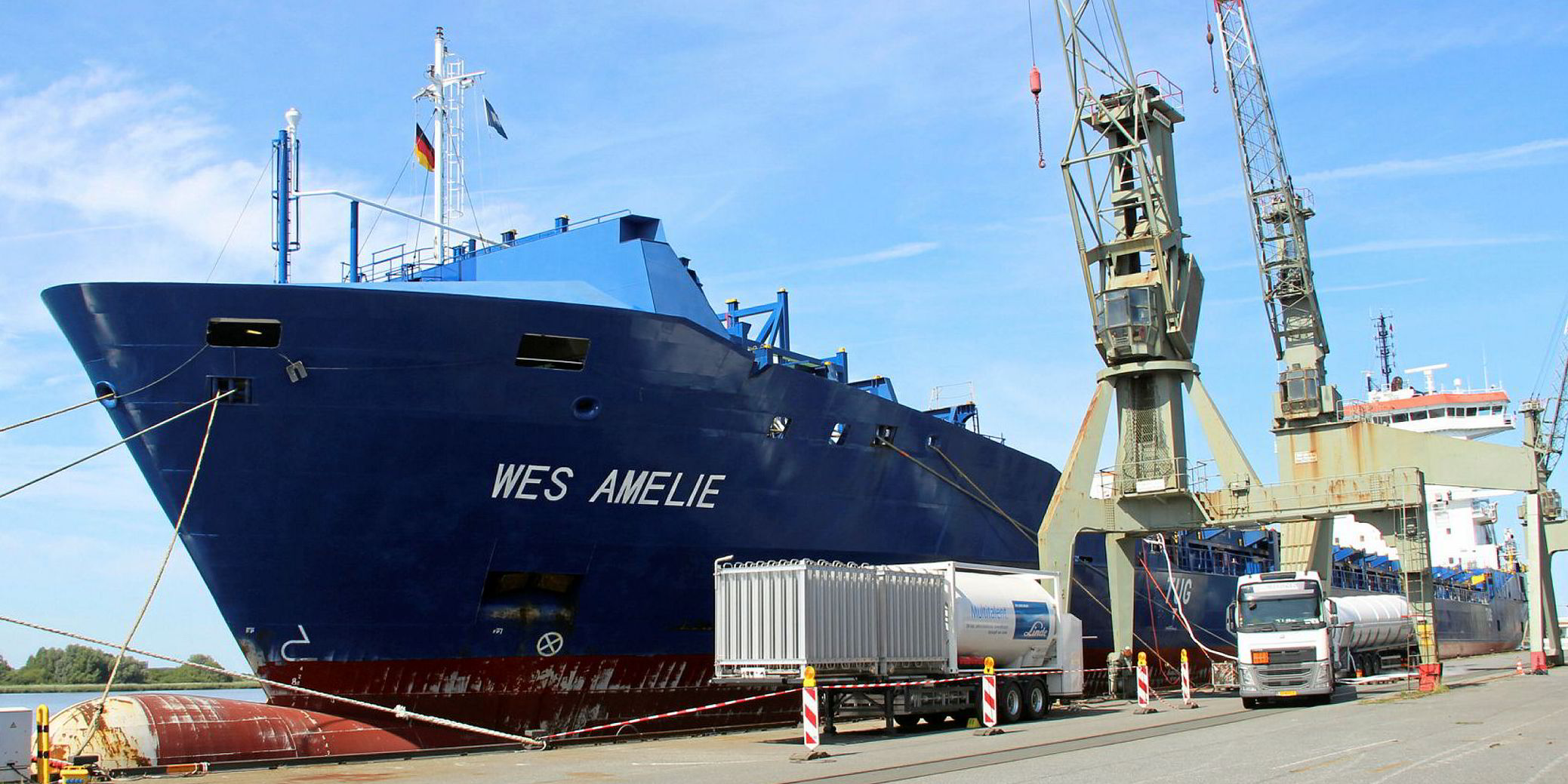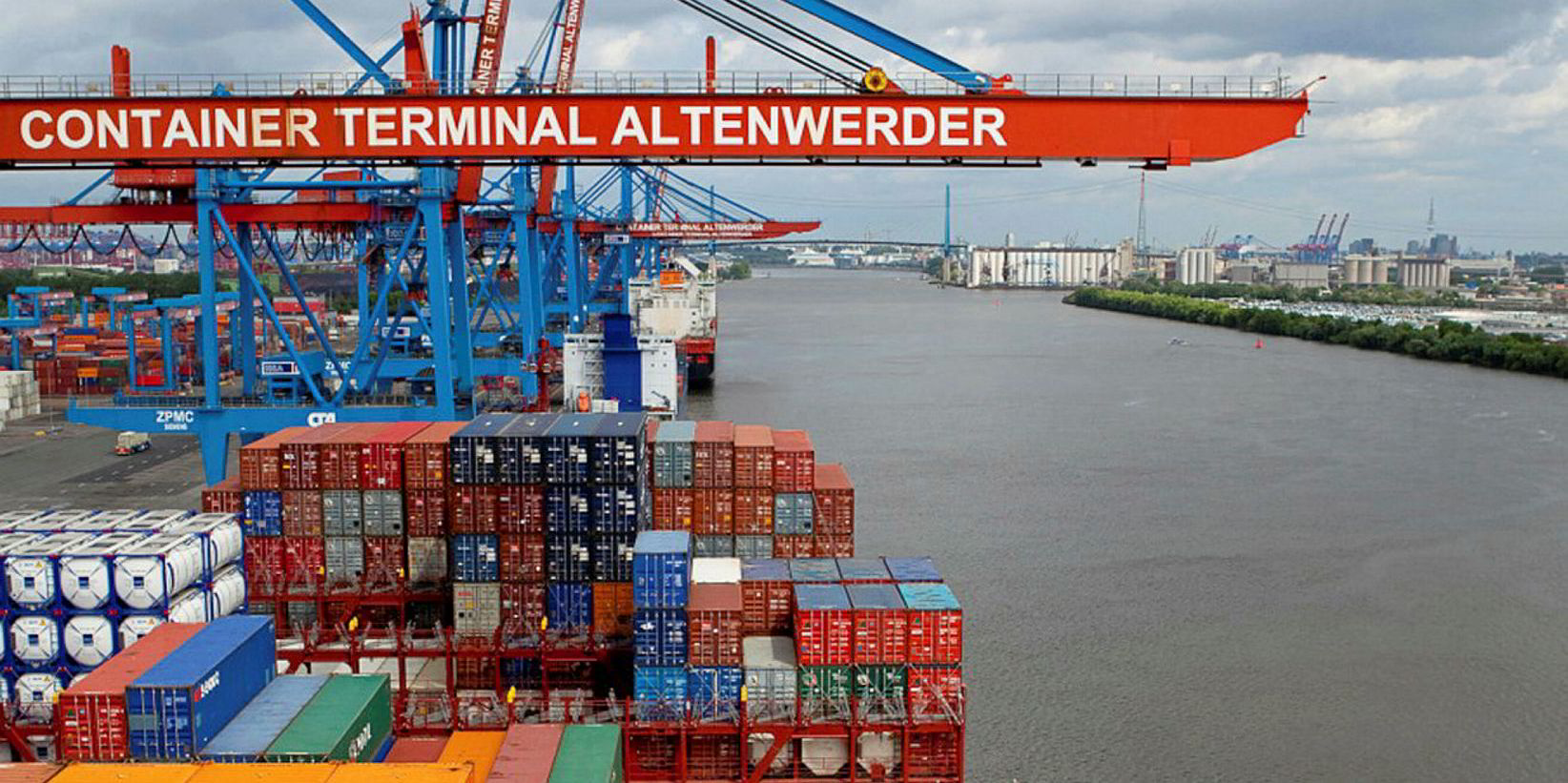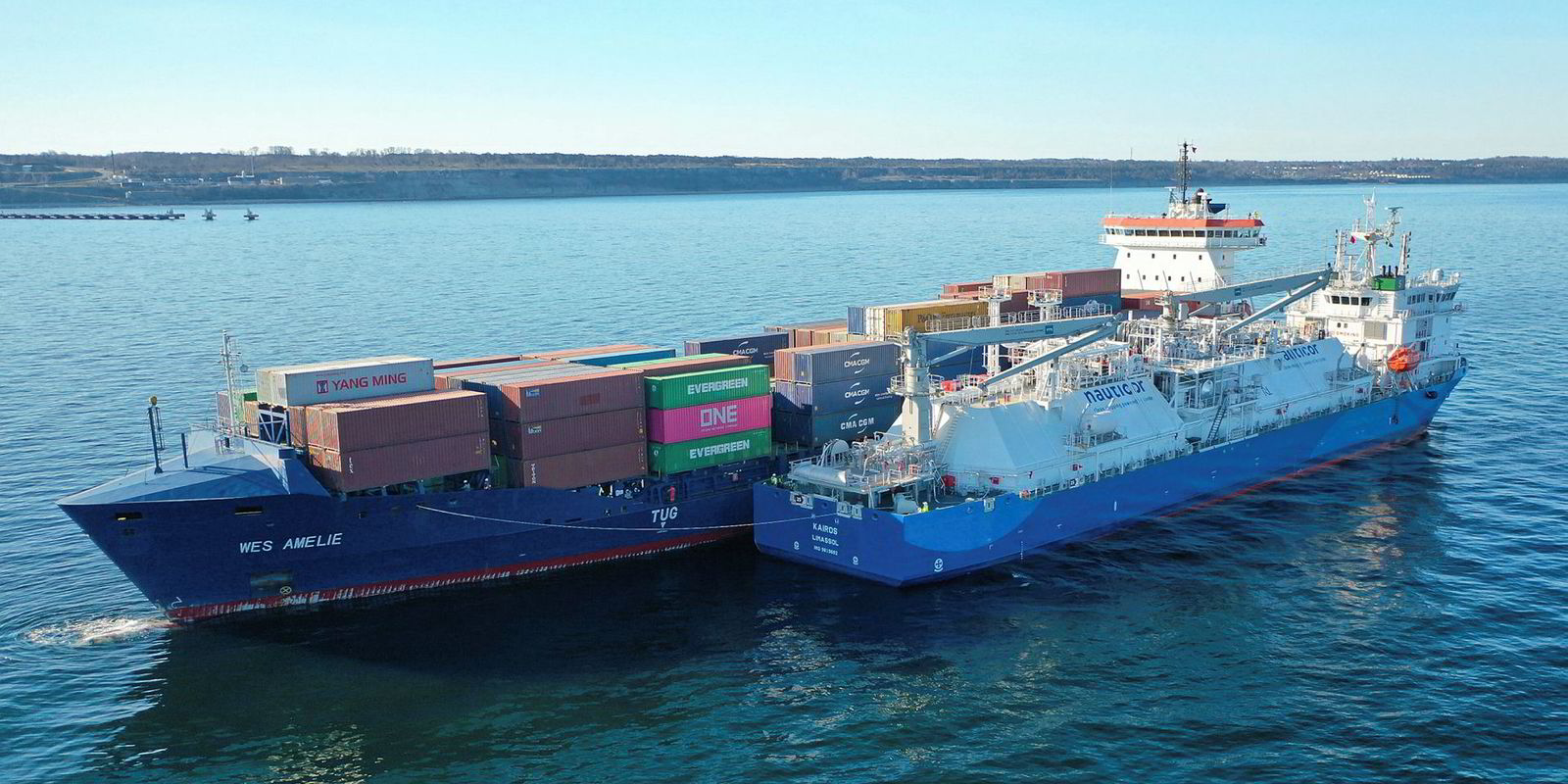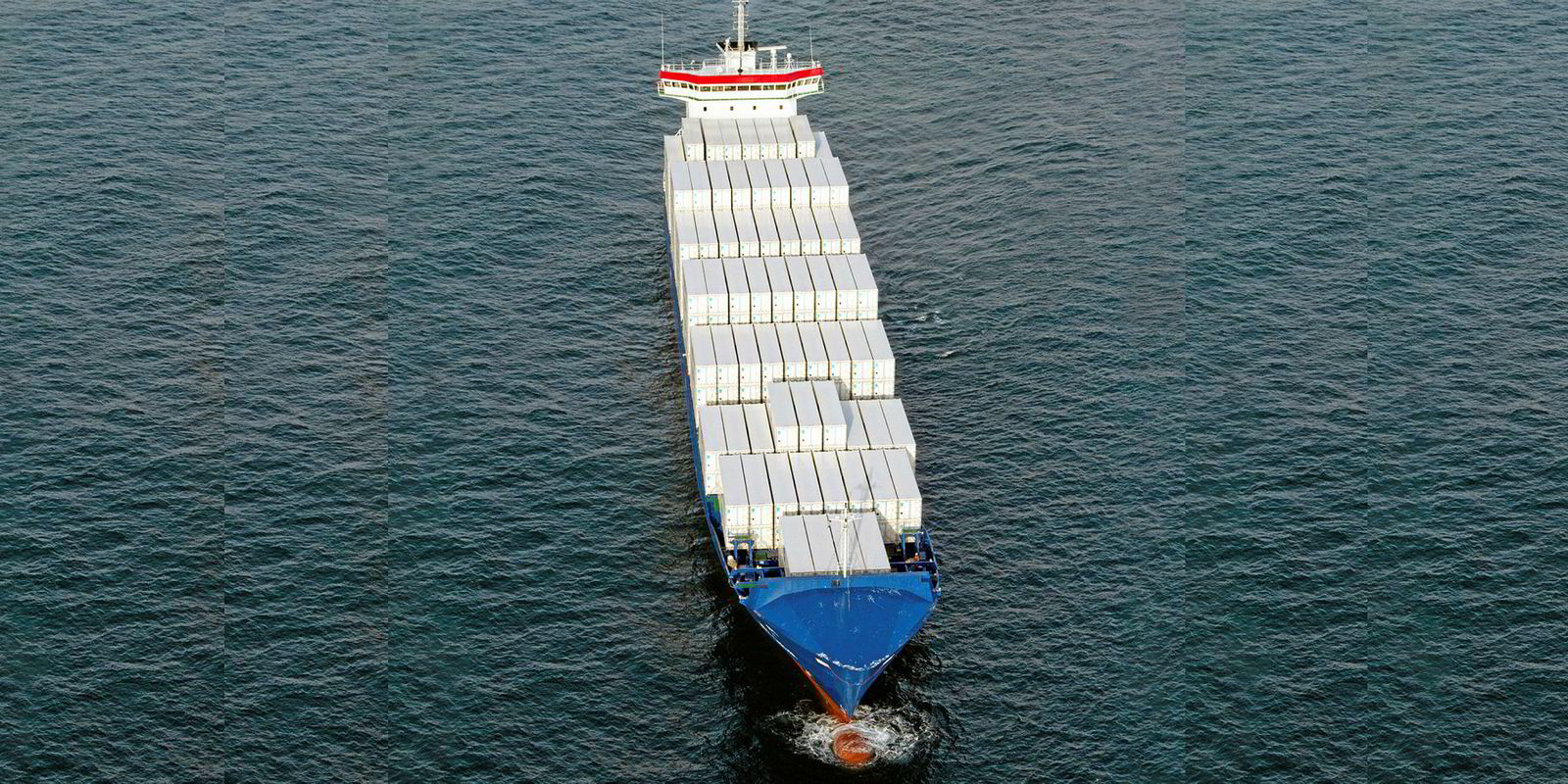Plans to convert 14 feeder containerships to LNG propulsion are moving forward in Germany.
The government is reviewing 10 funding applications from owners for LNG retrofits and four focusing on prospective newbuildings.
The funding opportunity results from the success of a pilot project involving the 1,036-teu Wes Amelie (built 2011).
The vessel was fitted for LNG propulsion in 2017 to become the first adopter of the gas as a marine fuel in the European container feeder segment.
The milestone scheme was initiated by Haren-based Wessels Reederei and co-financed by Germany's ministry of transport.
The Wes Amelie is managed by Hamburg-based LNG consultancy Wessels Marine, a spin-off of Wessels Reederei established in partnership with MPC Group of Hamburg.
Third year of employment
The ship is now in its third year of a charter with Danish operator Unifeeder.
According to Christian P Hoepfner, managing director of Wessels Marine, the project is proving a financial success for the charterer.
Fuel savings from using LNG in place of more expensive marine gasoil amount to €2,750 per day, or about €1m per year.
This is based on an average of 130 tons of LNG for a round voyage of 12 to 13 days. The savings will likely be higher, should the spread between LNG and conventional fuels increase.
In early January, when Hoepfner spoke to TradeWinds, the spread between a ton of LNG and MGO was about €235. It is now $199, down 29% over the month to 17 February, according to Fearnley Securities.
Hoepfer believes LNG, despite being a fossil fuel, is a sustainable long-term fuel for shipping, as the technology used on the Wes Amelie is capable of using synthetic LNG, known as SNG, which is carbon neutral.
Wessels Marine is working on introducing small amounts of SNG into the fuel mix as a sustainable fuel.
“We often hear ... that LNG is a dead-end street, but this is not true,” Hoepfner said. "We think that investment nowadays in LNG technology is something for the future as well.
“Fossil LNG is only a bridge towards CO2-neutral maritime transportation, because you can use the LNG technology with synthetic, carbon-neutral LNG."
LNG is established
Hoepfner argued that an LNG bunkering network is established in Europe in the Baltic Sea, as well as in the Amsterdam, Rotterdam and Antwerp.
And he believes Germany will complete the network by improving facilities in ports such as Brunsbuttel and Wilhelmshaven.
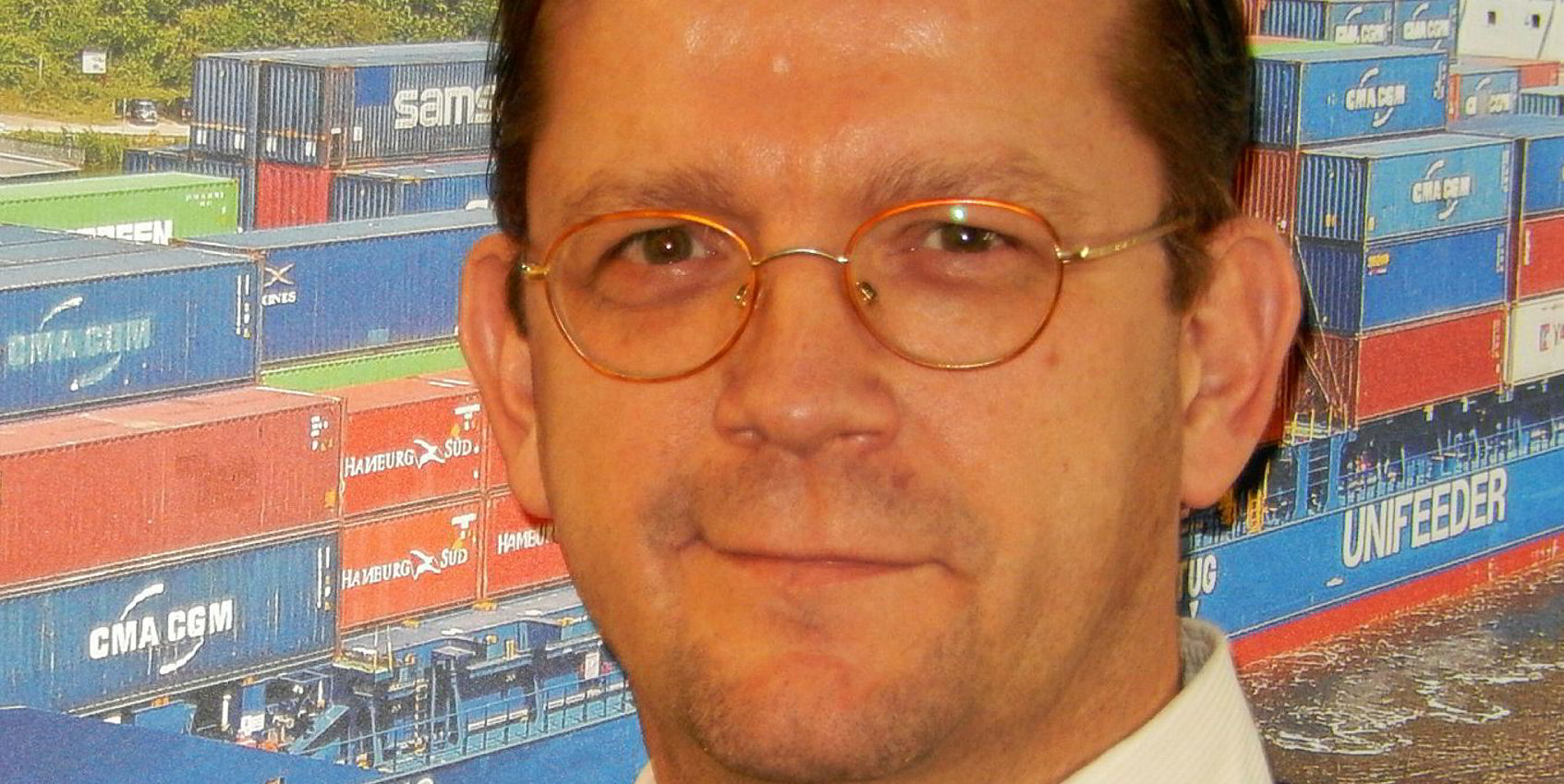
“I am convinced LNG is one of the promising alternatives to the conventional fuels," he said.
"The main hurdle remains the cost. Synthetic LNG is expensive to manufacture at 10 times the price of fossil fuel.
“But first we have to show it is technically possible to use it. Then we have to motivate the synthetic LNG producer to take the next step.”
Containerships are deemed suited to LNG due to their port-to-port schedules, Hoepfner added.
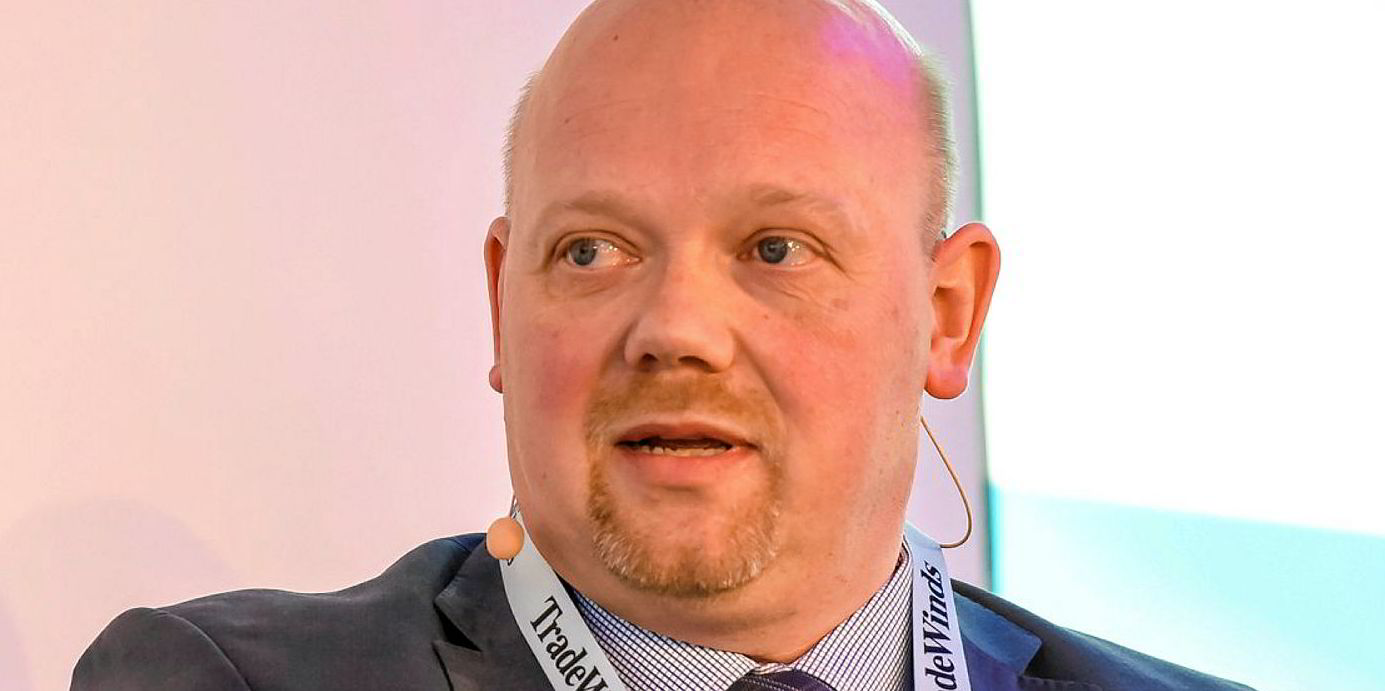
The Wes Amelie makes frequent calls to the Port of Rotterdam, which has established an LNG bunker facility. In 2017 and 2018, the Wes Amelie was the Dutch port's biggest client for LNG marine fuel.
There is also interest from charterers for LNG-fuelled containerships, according to brokers.
“With all applications, we have minimum letter of intent from various charterers,” said Ole Gabs of Arkon Allied Container, which is also involved in developing the feeder LNG containership project.
“But we had interest from six charterers who have signed letters of intent, or charter parties. This shows a common interest from liner services in LNG," he said.
“It is simply a question of supply," Hoepfner said. "That’s the reason we want to continue with conversion.”
Hoepfner sees huge potential for further LNG-powered vessels, mainly in Europe, then over time in Asia and the Americas.
“In Europe, LNG as marine fuel has basically been established and with each new bunker vessel in place it becomes more and more attractive,” Hoepfner said.
As a consultancy, Wessels Marine has been working with five owners seeking subsidies.
Applicants hope to obtain between 40% and 60% of the cost of converting a feeder vessel, which could amount to about €4m ($4.43m) towards the estimated cost of €7.5m for a retrofit.
While the financing does not cover the entire bill, Hoepfner added that the subsidy would make it easier for outfits to approach banks to finance the balance.
The application deadline for government funding expired on 18 December.
